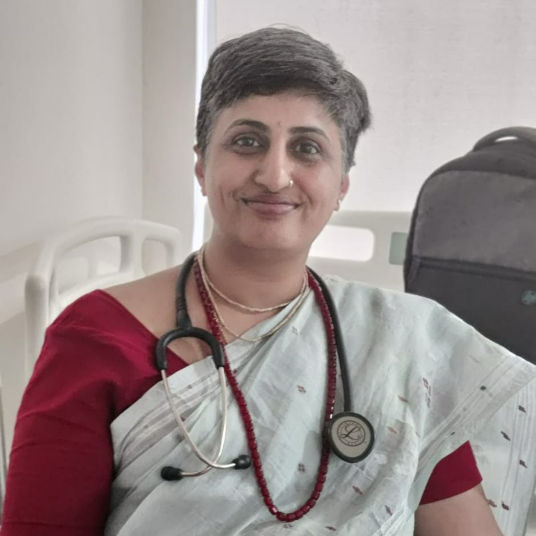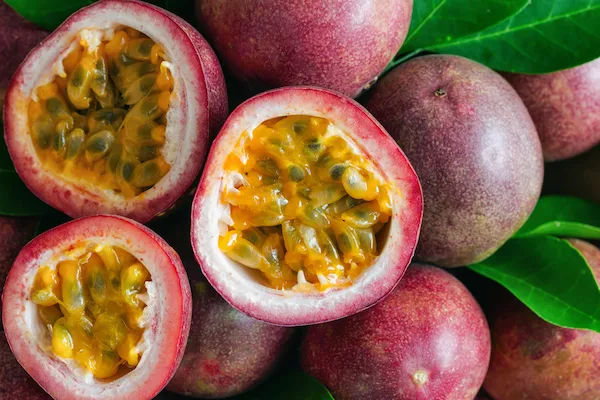Ways To Boost Immunity At Home
Discover practical and science-backed ways to naturally boost your immune system at home. Learn key tips on diet, sleep, exercise, and stress management to stay healthy year-round.

Written by Dr. Siri Nallapu
Reviewed by Dr. D Bhanu Prakash MBBS, AFIH, Advanced certificate in critical care medicine, Fellowship in critical care medicine
Last updated on 13th Jan, 2026

Introduction
Feeling under the weather more often than you’d like? The good news is that small, consistent habits at home can meaningfully support your body’s natural defenses. While there’s no magic pill, science shows that how you eat, sleep, move, manage stress, and care for your environment can strengthen immunity and reduce your risk of common infections. In this guide for the general public, we’ll translate complex research into simple, practical steps you can use today—no fad cleanses or extreme routines.
You’ll learn immunity basics, the most impactful food choices, how gut health influences immune responses, and why sleep and stress matter more than most supplements. We’ll also cover smart prevention at home, clarify which supplements are worth considering (and which to skip), and offer a 14-day habit plan to help you lock in the essentials. If you’ve been searching for natural, evidence-aligned ways to boost immunity at home, you’re in the right place.
Immunity 101: What It Is and How It Works
Immunity is your body’s security system. The innate immune system is your first responder—think barriers like skin, mucous membranes, stomach acid, and cells that quickly attack intruders. The adaptive immune system is your specialized task force; it “learns” from past exposures, creates antibodies, and responds faster and more precisely over time. Vaccines work by training adaptive immunity safely—so when the real pathogen shows up, your body is ready.
Signs of a well-functioning immune system include healing cuts in a normal timeframe, getting common colds only a few times per year, and recovering from minor infections without complications. Frequent severe infections, persistent fatigue, slow wound healing, or unusual infections can be red flags.
Myths to avoid:
• “Detoxes” or extreme cleanses don’t strengthen immunity; they can stress your body.
• Mega-dosing vitamins isn’t better; too much zinc can cause nausea and copper deficiency, and high-dose vitamin A or E can be harmful.
• One “superfood” won’t transform immunity; your daily pattern matters most.
Unique insight: Think of immunity like a dimmer, not an on/off switch. Your goal is balanced, responsive defenses—neither underactive (frequent infections) nor overactive (chronic inflammation).Consult a Top General Physician
Food-First Strategies to Strengthen Immunity
Your immune cells need the right building blocks. Start with an “immune plate” at most meals:
• Half plate: colorful vegetables and fruits (vitamin C, polyphenols)
• One-quarter: protein (dal, eggs, chicken, tofu, fish) to supply amino acids for antibodies
• One-quarter: whole grains or starchy veggies (brown rice, millet, oats, sweet potato)
• Add healthy fats (olive/mustard oil, nuts, seeds) for vitamin absorption
Key micronutrients:
• Vitamin C (citrus, amla, guava, bell peppers, kiwi) supports immune cell function; food sources are preferred for synergy and fiber.
• Zinc (beans, lentils, seeds, nuts, eggs, seafood) is vital for immune signaling; deficiency raises infection risk.
• Selenium (Brazil nuts—just 1, fish, egg, whole grains) helps antioxidant defenses.
Practical “immune meal matrix” to copy:
• Breakfast: Vegetable omelet + fruit; or oats with yogurt, berries, chia
• Lunch: Dal + brown rice + mixed veggie sabzi + salad; or quinoa-chickpea bowl
• Dinner: Grilled fish/tofu + sweet potato + sautéed greens; or chana masala + roti + kachumber
• Snacks: Roasted chana, nuts, yogurt, fruit
Gut Health: Your Immune System’s Hidden Partner
Roughly 70% of immune cells reside near your gut, constantly “listening” to what you eat. A diverse, fiber-rich diet nourishes beneficial microbes that train immunity and help maintain a calm, balanced response.
Focus on:
• Fermented foods: yogurt/curd, kefir, idli/dosa batter, sauerkraut, kimchi. These introduce live cultures and may increase microbiome diversity.
• Prebiotic fibers: onions, garlic, bananas (slightly green), asparagus, whole grains, legumes. These feed the good microbes.
• Polyphenols: berries, cocoa, tea, coffee, colorful spices (turmeric), and herbs. They support microbial balance.
Example day for gut and immunity:
• Breakfast: Plain yogurt with oats, banana, and cinnamon
• Lunch: Whole-grain roti + chana masala + mixed veg + pickled carrots
• Snack: Apple + handful of walnuts
• Dinner: Barley khichdi with vegetables + curd
Probiotics: Some strains may reduce respiratory infections modestly, but effects are strain-specific. If you try a supplement, choose a product with documented strains and CFUs, and reassess after 4–8 weeks. Food-first is still your base.
Sleep and Circadian Rhythm: The Overnight Immune Upgrade
Sleep is when immune memory consolidates your body “files” what it learned about germs and restores defensive cells. In a well-known study, adults sleeping less than 6 hours per night were significantly more likely to catch a cold after viral exposure than those sleeping 7+ hours. In short, short sleep weakens defenses.
How much? Most adults need 7–9 hours. Quality matters, too.
Sleep anchors:
Light: Get 5–10 minutes of morning daylight to set your clock; dim lights 1–2 hours before bed to cue melatonin.
Timing: Keep consistent sleep/wake times, even on weekends.
Wind-down: 20–30 minutes screen-free; try reading, stretching, or a warm shower.
If your mind races: Try the 4-7-8 breath (inhale 4, hold 7, exhale 8) for 4–8 cycles. Evidence suggests slow breathing can reduce arousal and help sleep onset.
Move Daily: Exercise, Recovery, and Immune Resilience
Regular, moderate activity enhances immune surveillance—think of it as gently “training” your system to respond efficiently. Brisk walking 30 minutes most days, or 150 minutes per week of moderate-intensity activity, is a widely recommended target. Resistance training 2–3 times weekly supports muscle, which helps glucose control and recovery—both relevant for immune health.
Evidence indicates that moderate exercise reduces upper respiratory infection days, while severe overtraining can transiently suppress aspects of immunity. Balance is key:
• Mix: 3–5 brisk walks + 2–3 short strength sessions weekly
• Fuel: Eat protein and carbs within 1–2 hours post-exercise
• Recover: Prioritize sleep and rest on hard-training days
Movement snacks: If busy, do 3 x 10 minutes—climb stairs, brisk walk calls, or 8–10 bodyweight sets (squats, push-ups, rows) sprinkled through the day.
Stress, Mood, and Social Connection
Chronic stress nudges your immune system toward dysregulation. In a classic experiment, people under high psychological stress were more likely to develop cold symptoms after controlled viral exposure. Short spikes of stress happen, but when stress becomes a constant, inflammation can simmer and defenses falter.
Fast-acting tools:
• Breathwork: Try 6 breaths per minute (inhale 4–5 seconds, exhale 5–6 seconds) for 5 minutes, 2–3 times daily.
• Micro-meditations: 60–90 seconds of attention to sound or breath between tasks.
• Gratitude cues: Write three specific, recent things you’re grateful for—shift attention from threat to resources.
Social connection: Regular, positive interactions buffer stress and correlate with better immune outcomes. Prioritize short check-ins with friends/family, join a walking group, or volunteer—quality over quantity.
Smart Prevention at Home: Hygiene, Air, and Environment
Foundations that consistently reduce infection risk:
• Hands: Wash with soap and water for 20 seconds after coming home, before eating, after restroom use, and after coughing/sneezing. If needed, use sanitizer (60%+ alcohol).
• Respiratory etiquette: Cough/sneeze into a tissue or elbow; dispose and wash hands.
• Surfaces: Regularly clean high-touch spots (doorknobs, phone, remotes) with appropriate household cleaners—especially during illness at home.
• Air: Increase ventilation by opening windows or using exhaust fans when possible. Avoid indoor smoke; if you cook with solid fuels, improve ventilation and keep children away from smoke.
• Humidity and comfort: Keep rooms comfortable; if very dry, a clean humidifier may ease nasal dryness.
Vaccination: your strongest shield
Vaccines “teach” adaptive immunity to respond rapidly, lowering the risk of severe illness. Adults should review routine vaccines (e.g., influenza annually, Tdap, COVID-19 as recommended) and condition-specific needs with a clinician.
Supplements, Sunlight, and When to Seek Care
Supplements can complement—not replace—habits. Evidence highlights a few options:
• Vitamin D: A large meta-analysis found that daily or weekly vitamin D supplementation modestly reduced acute respiratory infections, especially in people with low baseline levels. Consider testing if you get little sun, have darker skin, or live at higher latitudes. Apollo24|7 offers a convenient home collection for tests like vitamin D or HbA1c.
• Zinc: Starting within 24 hours of cold symptoms, zinc lozenges may shorten the duration by around 2 days for some people. Use appropriate dosing (often 9–24 mg elemental zinc per lozenge; follow product guidance) for a few days only to avoid nausea and copper depletion.
• Vitamin C: Food sources are excellent; supplemental benefits for prevention are mixed. It may slightly shorten illness duration for some, but megadoses can cause GI upset.
Be cautious with herbal products (echinacea, elderberry, astragalus). Evidence is mixed, and products vary; they can interact with medications and may not be safe in pregnancy or for autoimmune conditions. Check with a clinician.
Safe sunlight and timing: Short, regular mid-morning or late-afternoon sun on arms/legs (without burning) supports vitamin D. Use sunscreen when exposure is prolonged.
When to seek care:
If you experience recurrent infections, fevers, weight loss, night sweats, or symptoms persist beyond two weeks, consult a doctor online with Apollo24|7 for further evaluation.
If you’re considering supplements and take prescription medications (e.g., for thyroid, blood pressure, diabetes, anticoagulants), book a physical visit to a doctor with Apollo24|7 to review safety.
Consult a Top General Physician
Conclusion
There’s no single shortcut to stronger immunity, but there is a simple formula: repeat the right small actions. Prioritize sleep and a regular schedule so your immune system can “reset” every night. Build meals around protein and colorful plants, and include fermented foods and diverse fibers to support a resilient gut. Move your body most days—gently and consistently—and let recovery be part of your plan. Use breathwork and tiny moments of gratitude to turn down chronic stress, and keep your home environment clean, ventilated, and smoke-free.
When you need an extra layer, lean on proven tools: vaccination for major threats and targeted supplements like vitamin D or zinc when appropriate. If your condition does not improve after trying these methods, or you notice recurrent infections, book an online consultation with Apollo24|7 to discuss next steps. And if testing is relevant, Apollo24|7 offers convenient home collections for labs like vitamin D or HbA1c.
Start with one or two habits this week—perhaps a morning light walk and an immune plate at lunch—then add more as they stick. With steady practice, you’ll create a home routine that supports balanced, responsive immunity all year long.
Consult a Top General Physician

Dr. Rajib Ghose
General Physician/ Internal Medicine Specialist
25 Years • MBBS
East Midnapore
VIVEKANANDA SEBA SADAN, East Midnapore

Dr. Aakash Garg
Gastroenterology/gi Medicine Specialist
12 Years • MBBS, DNB (Medicine), DrNB (Gastroentrology).
Bilaspur
Apollo Hospitals Seepat Road, Bilaspur
(150+ Patients)

Dr. Kumudha Ravi Munirathnam
General Physician/ Internal Medicine Specialist
18 Years • MBBS, DNB (Int Med.), PGD (Diabetology), MNAMS
Chennai
Apollo Speciality Hospitals OMR, Chennai
(200+ Patients)

Dr. Ashmitha Padma
General Physician/ Internal Medicine Specialist
5 Years • MBBS, MD Internal Medicine
Bengaluru
Apollo Hospitals Jayanagar, Bengaluru

Dr. Khuda Baksh Nagur
General Physician/ Internal Medicine Specialist
11 Years • MBBS, MD (GENERAL MEDICINE), Certificate Programme clinicians in Diabetes Management
Bengaluru
Medwin multispeciality clinic, Bengaluru
(25+ Patients)
Consult a Top General Physician

Dr. Rajib Ghose
General Physician/ Internal Medicine Specialist
25 Years • MBBS
East Midnapore
VIVEKANANDA SEBA SADAN, East Midnapore

Dr. Aakash Garg
Gastroenterology/gi Medicine Specialist
12 Years • MBBS, DNB (Medicine), DrNB (Gastroentrology).
Bilaspur
Apollo Hospitals Seepat Road, Bilaspur
(150+ Patients)

Dr. Kumudha Ravi Munirathnam
General Physician/ Internal Medicine Specialist
18 Years • MBBS, DNB (Int Med.), PGD (Diabetology), MNAMS
Chennai
Apollo Speciality Hospitals OMR, Chennai
(200+ Patients)

Dr. Ashmitha Padma
General Physician/ Internal Medicine Specialist
5 Years • MBBS, MD Internal Medicine
Bengaluru
Apollo Hospitals Jayanagar, Bengaluru

Dr. Khuda Baksh Nagur
General Physician/ Internal Medicine Specialist
11 Years • MBBS, MD (GENERAL MEDICINE), Certificate Programme clinicians in Diabetes Management
Bengaluru
Medwin multispeciality clinic, Bengaluru
(25+ Patients)
More articles from General Medical Consultation
Frequently Asked Questions
1) What is the fastest way to improve immunity naturally at home?
Prioritize sleep tonight (aim for 7–9 hours), hydrate, and build your next meal around protein plus colorful plants. Short, brisk walks and a 5-minute breathwork session can also help calm stress and support immunity.
2) Which foods boost immunity the most?
Citrus, amla, berries, bell peppers (vitamin C), legumes/eggs/seafood (zinc and protein), nuts/seeds (healthy fats, selenium), and fermented dairy like curd/yogurt. Aim for variety to cover micronutrients and gut health.
3) Do vitamin D or zinc supplements really help immunity?
Vitamin D can reduce acute respiratory infections in people with low levels [4]. Zinc lozenges may shorten colds if started within 24 hours [5]. Test and speak with a clinician before supplementing. Apollo24|7 provides home collection for vitamin D tests.
4) How does sleep affect the immune system?
Short sleep impairs immune responses; people sleeping less than 6 hours were much more likely to catch a cold in a controlled study [6]. Keep consistent bed/wake times, dim lights before bed, and get morning daylight.
5) When should I see a doctor about low immunity?
If you have frequent or unusually severe infections, slow wound healing, fevers, or symptoms persisting beyond two weeks. Consult a doctor online with Apollo24|7 for evaluation and personalized guidance.




